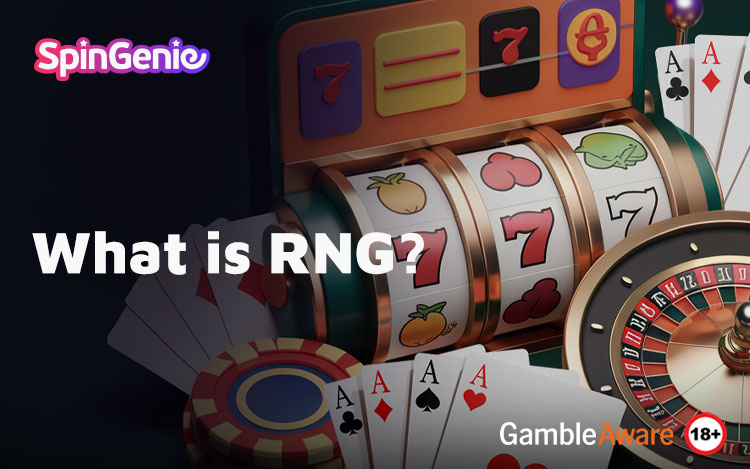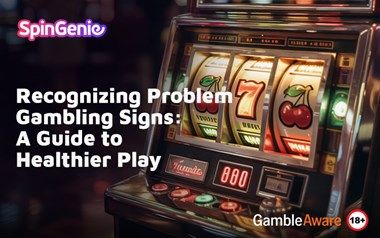The digital revolution seen in the last 30 years has changed and shaped all aspects of our lives. Happily for players of our real money online casino, this means that players can now enjoy thousands of great games 24/7 wherever they want to play and on whatever device they prefer.
Of course, such a massive shift from real-world to online has required a lot of innovations. Where in real casinos the human element of the croupier spinning the roulette wheel or dealing out cards kept things random and fair, for an online setting (outside of live casino games) a new system needed to be developed. Enter; random number generation or ‘RNG’ for short.
In today’s article, we’ll learn more about what RNG is and how it works.
What is RNG, and why is it needed?: An Overview
While later sections will explore the nuances of random number generation technology, let’s first create an overview of what RNG is.
So, what is RNG?
RNG refers to a piece of software that uses algorithms in connection with the designated math model for a specific online casino game to produce random, and therefore fair outcomes.
Before the digital age, RNG computer software in casinos wasn’t a thing. Venues didn’t need to worry about RNG as the human and/or mechanical element of machines used prevented predictable patterns. For example, in the case of one-arm bandit slots, the force and speed the arm was cranked would never be the same and would impact how the reels themselves spun. The same can be said for a host at a roulette table, not to mention the exact moment when the pill is added to the wheel adds another element of randomness.
The problem developers came across at the dawn of the digital age was figuring out a way to replicate this when faced with computer programs that, by default, could produce the exact same results perfectly every time. And thus, Random Number Generation was born!
How Does RNG Software Work?
This could get a little technical, and while it's not vital to know how the software works, it is useful to be aware of it, so we’ll keep things short and simple.
RNG software uses system clock seed data (a key) and complicated algorithms (the lock) to create secure and random outputs with great accuracy and fairness, such as this:
- The seed is a key that indicates the algorithm's expected outcomes. This includes not just the possible outcomes, but the likelihoods of them as defined by the game's specific math model (which includes factors like volatility, variance, and RTP).
- This information is then sent to the 'hashing algorithm', which can be thought of like a lock, as it provides fair and (if the software has been certified as fair) secure outcomes which cannot be tampered with.
- The hashing algorithm doesn’t use quantitative (numerical) data. Instead, all the possible outcomes are rendered as a shape or concept. For example, in online slots the RNG software will associate each value with a 'tile' (reel position) and an image.
- Thousands of possible outcomes are generated by the software in the few moments that the reels spin.
- The software selects an outcome, and the reels/wheel stops or the cards are dealt, and the player is presented with the result of their spin, all without knowing the mathematical and computing wizardry that has taken place!
True Vs. Pseudo RNG
RNG is a sophisticated program with two subsections.
- HRNG, which stands for ‘Hardware Random Number Generator’ (also referred to as a 'True Random Number Generator'/TRNG). It is HRNG which comes into play at physical casinos and games with real dealers.
- PRNG, which stands for pseudo-random number generator, is the method of RNG used by digital and online casino games. Note that though the term ‘pseudo’ has negative connections, in PRNG it merely refers to the fact that a computer program is used instead of a real person/machine.
A Note on Randomness
No matter the method or circumstance, nothing is ever truly random; if you were to generate millions of outcomes on an online slot, for example, you may start to notice a pattern. Instead, randomness is defined by the number of times different results can occur before a pattern can be established; as it is unlikely any player will even sit down to a session where they play hundreds of thousands of games or rounds; PRNG used in online casinos is about as close to random as it gets.
Cases of RNG Manipulation
We’re far more trustworthy of things we can see with our own eyes, and as online software uses unseen algorithms, players can be uneasy and have concerns of manipulation behind the scenes. However, they needn’t worry, as RNG systems are highly complex, making cases of manipulation rare!
Officials doubted Reid Errol McNea's 1995 keno jackpot win of $100,000 at Bally's Park Place Casino in Atlantic City despite 1 million-to-1 odds. Fortunately, US law requires state gaming regulators to validate prizes above $35,000. McNeal had an accomplice called Ron Harris, a Nevada computer techie.
In his day job, Harris evaluated gambling machines in Nevada working directly with the computer chips of popular video casino games at brick-and-mortar locations, officials found. Harris discovered he could predict Keno numbers using his day job data and has also been using this method to steal from other Las Vegas casinos for years. Ultimately Harris was sentenced to 7 years in prison (serving 2) and was banned from casinos for life.
Since then, game makers and regulators have developed strict security rules, making it difficult to trick an RNG by accessing proprietary software and modifying the algorithm. Regulators are stringent; therefore, manipulating the game would be caught and punished quickly.
How RNG is Made Safe
Modern online casinos employ MD5, or ‘Message Digest Method 5’ software developed by Ronald Rivest as a technique for digital signature verification in 1991. This software is checked and tested by third-party auditors, meaning players can play without worry; and without an I.T. degree!
Some of the most well-known auditors are:
- BMM Testlabs: For almost 30 years, BMM Testlabs has been a leading authority. It tests any online casino game with casinos from numerous countries.
- iTech Labs: Founded in 2004, iTech Labs provides audits in North American, Asian, and European regions and are experts in national restrictions and constraints.
- Gaming Laboratories International: GLI credentials are in great demand among iGaming companies as their certifications are recognised in the most rigorous global marketplaces.
- eCogra: UK players know eCogra (eCommerce Online Gaming Regulation and Assurance) well because it's situated in London. It investigates online betting software and procedures to safeguard player rights, ensure fair games, and verify provider accountability.
These third-party auditors are impartial, and in order for a game to feature at legitimate online casinos it must have a certificate ensuring fair play. Therefore players at legitimate online casinos don’t need to check the status of the games they play, but if they prefer information is always easy to find, usually at the bottom of every page on the site.
RNG is therefore the foundation of online gaming, allowing operators and game providers to employ a "provable fairness" strategy that reassures and empowers players due to its openness.
Overall, it is extremely improbable that a third-party audited game housed in a licensed casino would have its RNG software modified. If a site or developer is detected, the consequences, including reputational damage, penalties, and possibly criminal prosecution, far outweigh any gain.
Play the Best RNG-Certified Games at Our Legitimate Online Casino
At our licensed and regulated online casino you can play the best games worry free. We’re licensed and regulated by gaming license with the United Kingdom Gambling Commission (UKGC: account number 39326) and our site and games are third-party tested by iTech Labs.
So, for the most fun and fair online casino games, sign up and play today at Spin Genie.













